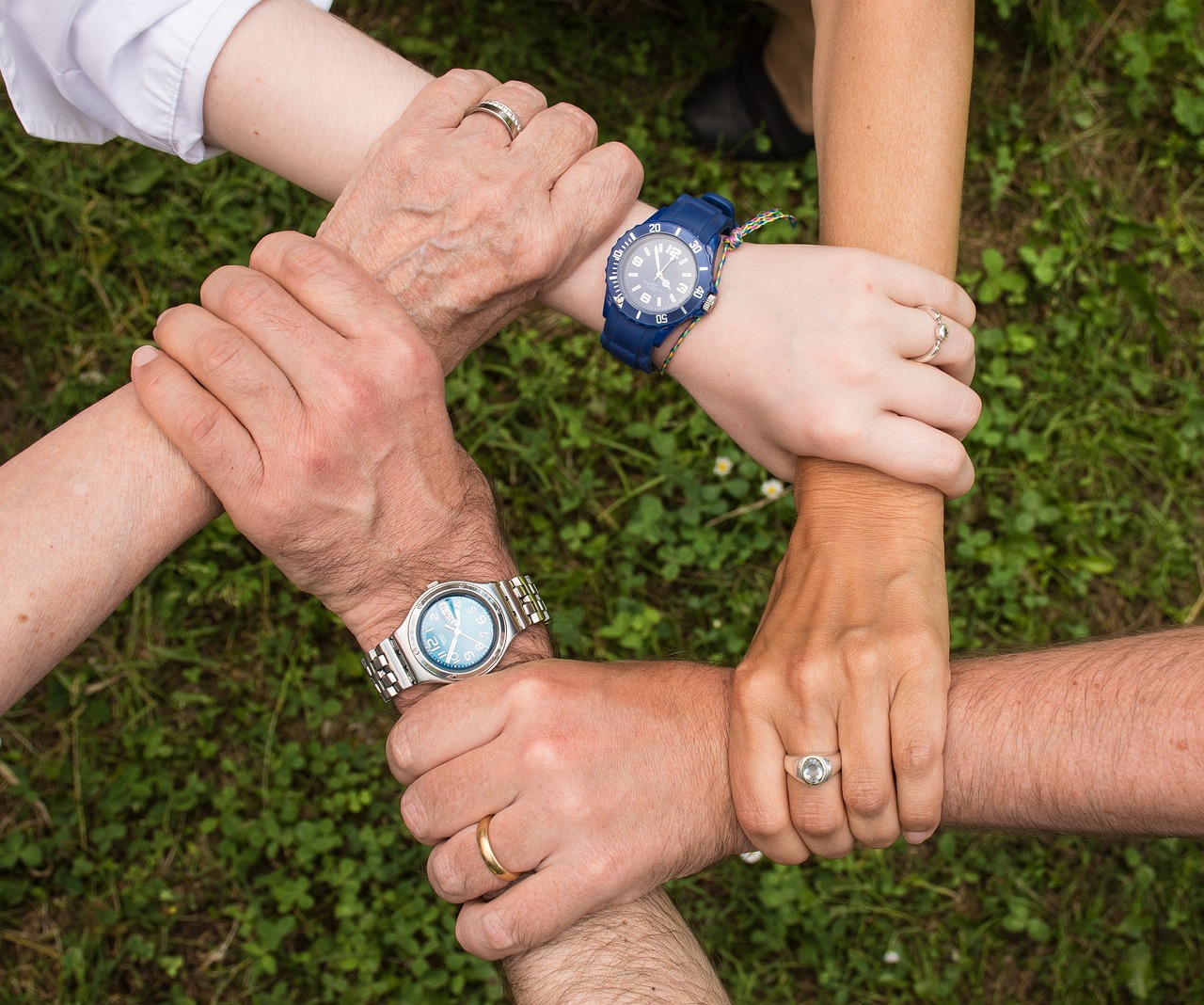Digital divide or rights violations in old age? ATMs and pineapple cans

Today we are going to talk about easy openers. I want you, please, reader, to think with me of one of those easy-openers who were anything but easy. Those easy openers that you would condemn to forced punishments, for rebelling without a cause. In my case, I remember the day I stood with the little ring in my hand, while the canned pineapple laughed at me from inside its fortress. We could think that it was my clumsiness, that maybe I didn't know how to reach the necessary degree of inclination to take advantage of the potential of the ring. But what if that happens to you, too? And to your neighbour? And your cousin, and the baker, and the butcher, and the miller, and the primary care doctor in your neighbourhood. You might think that we are all equally clumsy, that we all need a crash course in can opening. But maybe, and only maybe, I can think of other options: What if what happens is that the easy-opening mechanism is not well designed and it is not really that easy? In other words, it is a product that does not do its job, because it is clear that part of the population does not have easy access to the inside of the can. Are we, the customers and consumers of canned pineapple, responsible for the malfunctioning of the easy-opener or is it the pineapple producer/packer who should ask himself why an important part of his clientele is not receiving a good service? Perhaps adequate thought has been given to the best (most efficient, most economical within efficiency) way to preserve pineapple, but less attention has been given to how to make it easier for fans of canned pineapple to consume. What they call accessibility and usability, but applied to the easy-opener.
We are then forced to resort to can openers, to call the neighbour to help us, and in the neighbourhood they start talking about our problem. They speak with a certain pity, with a certain weariness, and tell us that we are simply not prepared to open cans. They tell us that we belong to a group condemned by the can opener gap. That we should learn, because they can (although sometimes, to be honest, it's a bit hard for them too). Please, a little more patience with my pineapple and my can; I promise we are now getting to the point.
What if we had to open the pineapple in the middle of the street? We want to eat pineapple, but we have to do it in a specific spot, where other pineapple fanatics are waiting behind us to get access to their own can. And they start to get impatient. What a stress. I'm going to start to venture that the pineapple canning company should do something about it if they want me to continue consuming their product.
Faced with this situation, with all those people behind me waiting, protesting, and this idea that "I have not been able to overcome the easy-opener gap", it is quite likely that I would stop eating canned pineapple. Given alternatives, it wouldn't be much of a problem. But what if the easy opener - badly designed, because there are many of us who don't get it right - was in fact a stepping stone to something more necessary? For example, a pension. Well, let's stop talking about pineapples; let's change the concepts "pineapple" for "pension" and "can opener" for "cash machine".
If we take into account that 19.6% of the Spanish population is over 65, that the vast majority are pensioners (approximately 90%), that receiving a retirement pension is the result of a right (a social right guaranteed by our Welfare State) and that this pension is paid directly into banks... If access to receiving a pension is made more difficult, is this a way of violating a right? Leaving aside my bad metaphor, the question is deeper than it seems: is it a digital divide or a possible violation of rights that we are being forced to use the ATM to access our pension, when this system does not prove to be adapted to our needs and capacities?
Within the framework of our social contract, there are a series of conditions for receiving contributory retirement pensions (in Spain there are some 6,228,161 contributory retirement pensioners), widows' pensions (2,348,674 widowers, of whom 1,867,602 are over 65 and are the ones we are referring to), but should knowledge of a particular software be an additional requirement? In addition to paying contributions, should I be required to have a certain amount of knowledge in order to receive my pension? If not, I can't get my money. At the moment, it doesn't seem very fair to me.
But I have other questions; going back to our pineapple, would we choose to eat a brand of canned food that is more suited to us? What if I can't? "No, there's no other system," I'm told. Maybe, angry, I would stop eating canned pineapple (welcome, seasonal fruits) but is this imposition fair when canned pineapple is, in fact, public money deserved, earned and from which the producers of this so-called easy-opener are benefiting? I think, reader, you will agree with me that the banks where public pensions are deposited make a profit from this transaction. That is, they make a profit by being temporary recipients (custodians) of public money to which a number of people are entitled. They have this money at their disposal to lend it out, they charge for a series of procedures (which will be carried out in the same bank where the bulk of the pension is held), they take advantage of this to sell us other banking services, and they become the "owners" of the data of all those pensioners who prefer to deal with a person rather than a cashier.
However, let us not forget, banks are intermediaries; they are not repositories of the right. Should these receivers/intermediaries facilitate access to the money that is, in essence, the property and vested right of pensioners? It seems to me that they should. That beyond questions of morality and inclusion (those crazy things that I can think of), it is part of their obligation when it comes to adequately fulfilling the mission entrusted to them. And I say mission entrusted because, if I am not mistaken, it is not possible to collect the pension in cash directly from the issuing body. Any other service would, at the slightest inefficiency, cease to be offered by the (private) company in question and be replaced by a better one. Is it the user's clumsiness, lack of knowledge and need to learn, or is it that the company in question is not offering an adequate service? Is it the responsibility of the user, who must learn to use a new technology, or is it the private company that must offer an adequate service in this case?
As a final note, I will admit that during the writing of this post I could not help but eat a can of canned pineapple. Fortunately I did not use cakes as a metaphor.


